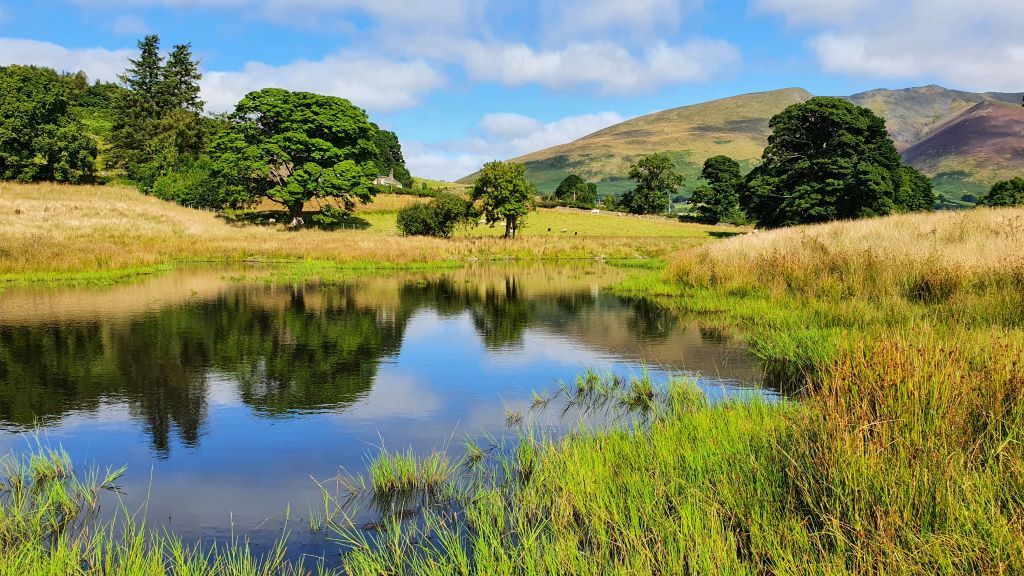
A project to help reduce Keswick’s flood risk has been awarded £550,000 from the Government.
Resilient Glenderamackin is an ambitious scheme which aims to deliver natural flood management using pond and wetland creation, river restoration techniques and reconnecting watercourses with their floodplains.
it is spearheaded by West Cumbria Rivers Trust with partners the Rivers Trust and Nature Finance.
The cash has come from Defra and is one of 34 Landscape Recovery grants, as part of the new Environmental Land Management scheme and allows large scale projects that deliver for nature and farming to be developed across multiple landholdings.
The Glenderamackin catchment is approximately 142sq km and includes the mountains and river valleys that drain into Keswick from the east including Mungrisdale, Troutbeck, the Naddle and St John’s in the Vale.
Land managers, covering 11,000 hectares have given their support to explore Landscape Recovery, including three commons associations, the trust said.
The project aims to temporarily store around 800,000m3 of water and the project will provide further flood risk benefit by slowing the flow of water through woodland creation, peat restoration, soil improvements and grassland restoration.
It is modelled to take 10 per cent off the flood peak within Keswick in a one-in-30 year event and continue to offer protection up to the 2050s taking into account mid-point climate change predictions, the trust said.
A key criteria of the funding is to support sustainable food production, which doesn’t have to be at the expense of nature. The team is working with farmers to design the project to allow farming and nature to go hand in hand; whilst creating new job opportunities along the way, including for local contracting businesses.
Private finance is essential in helping the team deliver this project. As part of the Resilient Glenderamackin project, the team is exploring ways that they can bring in private finance to help bolster the project and ensure they get the right intervention in the right place.
It may include peatland and woodland carbon codes and delivering the environmental strategies of key local agencies and organisations through the project, the trust added.
Conversations with a range of organisations are still in the early stages but the trust said it was always keen to hear from others interested in working with it.
At the end of the development phase, land managers will have the option to enter a long-term agreement (which will include maintenance payments) to implement these changes on their land.
Vikki Salas, the trust’s assistant project director, said: “This has been a complex and exciting project to develop to date, both in its scope and potential impacts for nature, the community and the land managers and businesses we’ll be working closely with. We’ll be breaking new ground and we’re confident that the opportunities through Landscape Recovery will allow us to finalise project development and get going on the ground as soon as possible to urgently address the biodiversity and climate issues this area faces.”
Greg Nicholson, a farmer near Keswick, said: “It’s great to hear West Cumbria Rivers Trust has got funding to develop the Resilient Glenderamackin Landscape Recovery project. They’re good to work with and I’m looking forward to finding out more about what we can do together to deliver positive work in the catchment that has wider benefits for nature and reducing flood risk, alongside our farm business.”








